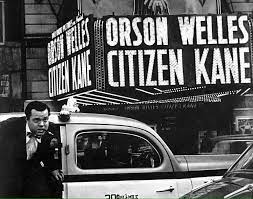On 2nd August 2013, Johnson & Johnson, one of the world's largest pharmaceutical companies, faced a significant blow to its reputation when it was fined for unethical practices. The case involved allegations of misleading marketing and inadequate warning labels on their products. This event marked a turning point in the pharmaceutical industry and highlighted the importance of transparent and ethical practices.
Background:
Johnson & Johnson, a renowned healthcare company, had built a reputation for providing quality products and services. However, in recent years, concerns had arisen regarding the marketing tactics employed by the company, particularly concerning the safety and effectiveness of certain medications.
The Fine and Allegations:
On 2nd August 2013, Johnson & Johnson was hit with a fine of $2.2 billion by the United States Department of Justice. The fine was in response to allegations that the company had engaged in unlawful promotion of prescription drugs, including the antipsychotic drug Risperdal, for off-label uses. Off-label use refers to the prescription of a drug for a purpose not approved by regulatory authorities.
Misleading Marketing Practices:
The allegations against Johnson & Johnson centered on the company's aggressive marketing campaigns that targeted doctors, downplayed the risks associated with their drugs, and promoted off-label uses. The company was accused of providing misleading information to physicians, leading to an increase in prescriptions for unapproved uses of their medications.
Inadequate Warning Labels:
Another significant issue highlighted in the case was the inadequate warning labels on Johnson & Johnson's products. The company was accused of downplaying potential side effects, particularly the increased risk of stroke in elderly patients taking Risperdal. This omission of crucial information jeopardized patient safety and raised concerns about the company's commitment to transparency.
Legal Consequences and Repercussions:
The $2.2 billion fine imposed on Johnson & Johnson was one of the largest in the history of the pharmaceutical industry. It was intended to serve as a deterrent and send a clear message that unethical marketing practices would not be tolerated. The case led to a wave of lawsuits against the company, further tarnishing its reputation and resulting in significant financial losses.
Impact on Pharmaceutical Industry Ethics:
The Johnson & Johnson case served as a wake-up call for the pharmaceutical industry, highlighting the need for stricter regulations and ethical practices. It led to increased scrutiny of marketing tactics and prompted regulatory bodies to tighten controls on drug promotion. The case also emphasized the importance of transparency in providing accurate information to both healthcare professionals and patients.
Rebuilding Trust and Lessons Learned:
In the aftermath of the fine, Johnson & Johnson took steps to rebuild trust and restore its reputation. The company implemented stricter compliance measures, enhanced transparency in marketing practices, and revised warning labels to provide more accurate information about their products. Additionally, they settled numerous lawsuits related to the case, compensating those affected by the misleading marketing campaigns.






